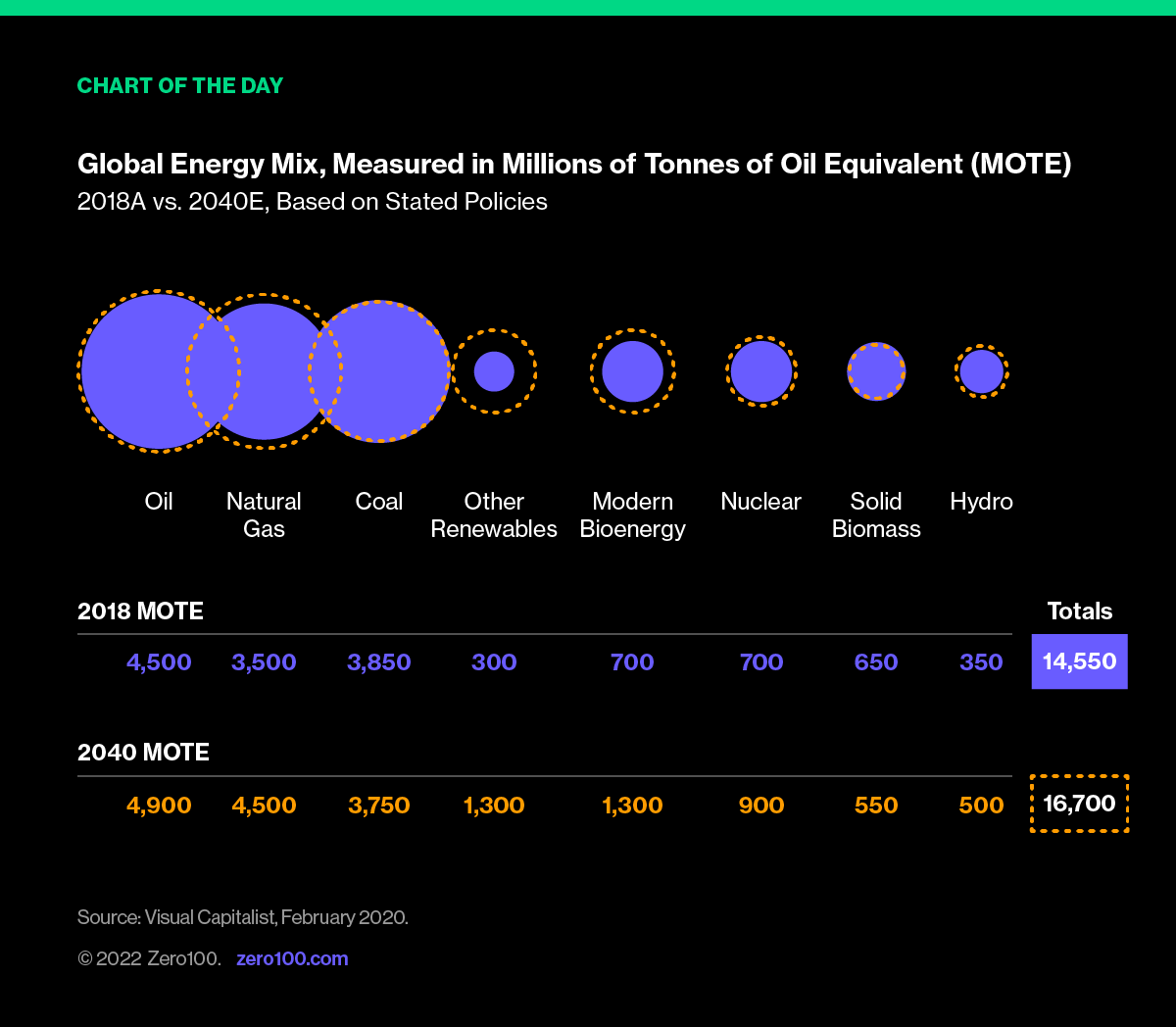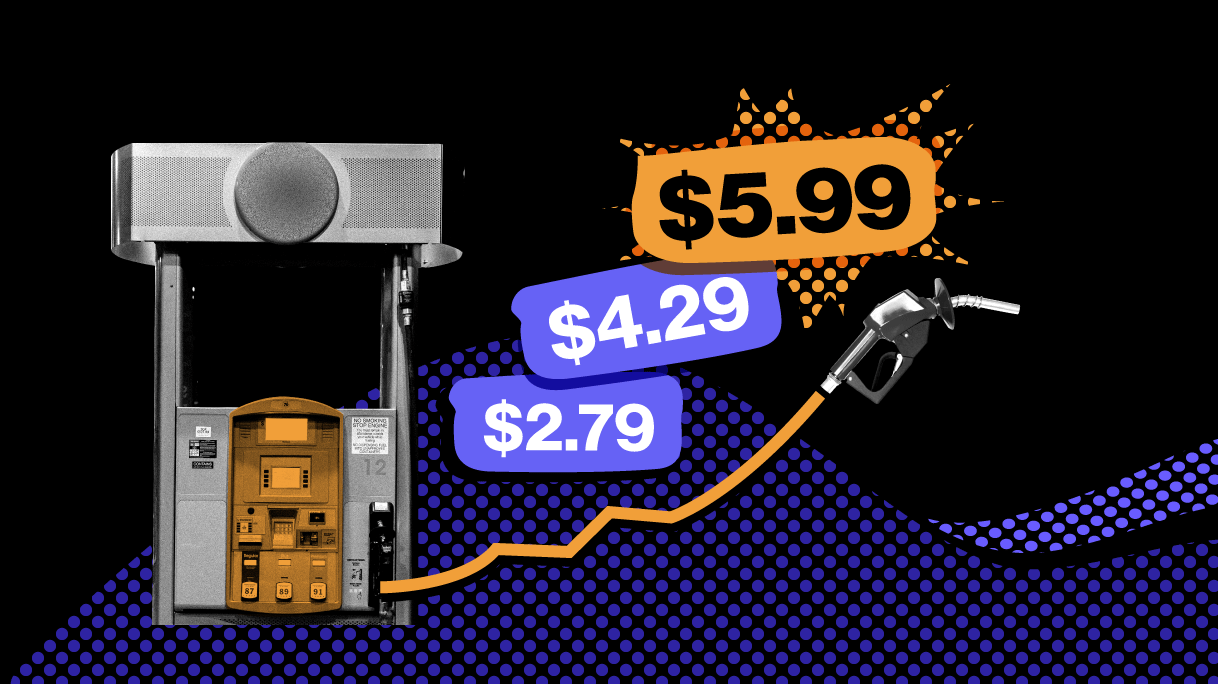Over the past two weeks, the average price of regular gasoline in the United States increased +22% to $4.43 per gallon (and as much as $5.74 in California). And yet, the price of crude is suddenly back down by 30% and below $100 per barrel just a week later. A few questions come to mind:
- How does a country (Russia) that only accounts for 7% of U.S. oil imports generate this outsized effect at the pump?
- Why does it go up so fast and then back down again, with so little real change in the bigger picture?
- For those old enough to remember the 1970's OPEC-driven energy crisis, where are the long lines of cars waiting to fill up?
Addicted to Volatility
One theory I'll offer is that we are, in fact, crazy.
I know oil economists will point to more rational explanations, like bottlenecks in domestic refining capacity, global commodity markets setting prices, or even consumer expectations of inflation, but something doesn't quite add up. Isn't it also possible that in our ever escalating 24-hour frenzy of news (real and/or fake) we've developed a craving for crisis?
How else does one answer Question #3 above – people are not worried about finding gas (supply), nor are they trying to buy more (demand). They're just angry that they have to pay more. It's a great crazy-making story for your local news station, but maybe that's all it is.
Be Cool
After two years of pandemic and three weeks of war, crazy feels right, but I'll argue that in this case it's wrong. First off, unlike the 1970's there are options. Many people can work from home and skip the commute. Also, more people than ever have electric vehicles and are feeling pretty smart right now. Plus, for some folks who drive for a living, many companies are passing along higher costs to customers with surcharges (Uber) or comping drivers with cash (DoorDash).
Second, to quote Stephanie Link, Hightower's Chief Investment Strategist: “the consumer is in very good shape.” In other words, inflation is still not cutting into consumer spending much, which means many can swallow these surcharges without too much pain. In fact, squaring the inflation puzzle with the “Great Resignation” and depressed workforce participation rates begs the question of whether people will go back to work once their savings get thin, tamping down inflation across the board.
Third, we're already well on the way to the end of oil. Electrification in transportation is happening faster than many pundits had expected. Pressure to cut plastic use (which consumes around 4% of all crude oil produced) is building with ultra-visible brands like Starbucks and Coors making big public shifts away from disposable packaging. Not to mention, we're seeing a Putin-inspired pivot away from fossil fuels in Europe.
Never Waste a Good Crisis: There Are Ways to Help
This call for macroeconomic cool is admittedly insensitive to loads of people who can't easily tough it out. They deserve solutions which logistics, sourcing and product management people are positioned to offer immediately and will sound good to people watching TV reporters standing in front of gas stations.
Fuel Efficient Logistics
First, it's time to double-down on routing optimization, load building, and delivery scheduling. Fast is always good for customers, but with diesel prices even worse than gasoline, the premium required to offer a cheaper four-day delivery option is higher than ever. Why not flip the fuel surcharge and offer customers a “gas savers” price? This would be especially useful for companies like Ashley Furniture which run a huge fleet, or for routine delivery categories like pet supplies (Chewy.com, for instance). There are loads of ways to mix and match BOPIS and there may never be a better time to train consumers about the miracles and tradeoffs of brilliant logistics.
Cut the Plastics
Second, although hydrocarbon molecules have such amazing properties that I do not believe plastic will ever disappear completely, the time is perfect to double down on the movement to reduce its use. Bioplastics, recyclable metals, refillable containers, and recoverable tertiary packaging are all booming with innovation right now. Sourcing professionals working closely with packaging engineers have already made huge strides here (see Amazon and Procter & Gamble for example). Follow their lead and make sure customers see what you're doing and why.
Show Your Work
Gas prices are a bellwether for public confidence. When they go crazy, we go crazy. For supply chain leaders who can do something concrete and understandable for customers, this is a golden opportunity to tie work you're already doing to something people really care about.

Critical Reading
THE NEW YORK TIMES
Warehouses Transform N.Y.C. Neighborhoods as E-Commerce Booms
Commentary: As e-commerce continues to grow, online retailers, manufacturers and delivery companies are gunning for warehouse space in NYC, where the largest concentration of online shoppers in the country resides.
#ecommerce #manufacturing
SCIENTIFIC AMERICAN
War in Ukraine and Climate Change Could Combine to Create a Food Crisis
Commentary: Countries including Turkey, Thailand, Egypt, and Indonesia are facing a new challenge as a result of Russia's invasion of Ukraine – food security. Coupled with extreme weather events caused by climate change, this new hurdle emphasizes the need for more diversified systems and more localized production.
#food #climatechange
VICE
Shenzhen Shutdown Is a ‘Shock' to an Already Stressed Supply Chain
Commentary: Shenzhen, China, where hundreds of notable tech companies including Foxconn operate out of, has been locked down due to record high COVID numbers, placing further stress on supply chains.
#covid #tech
